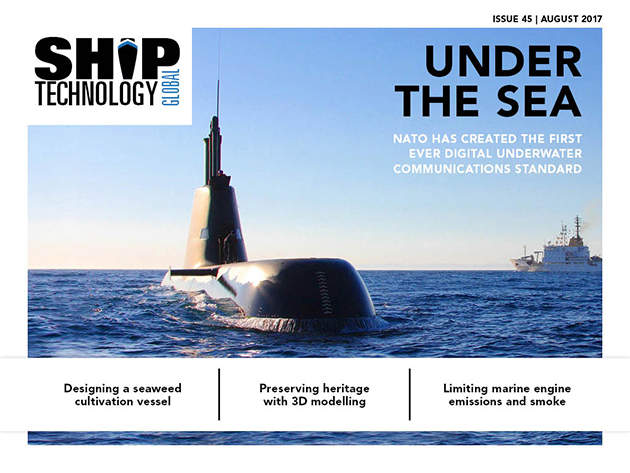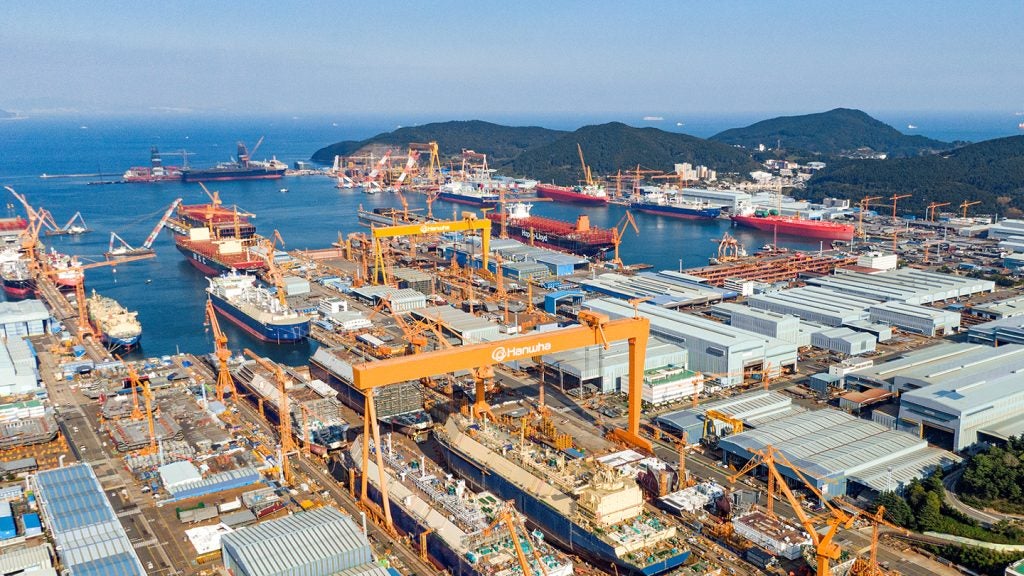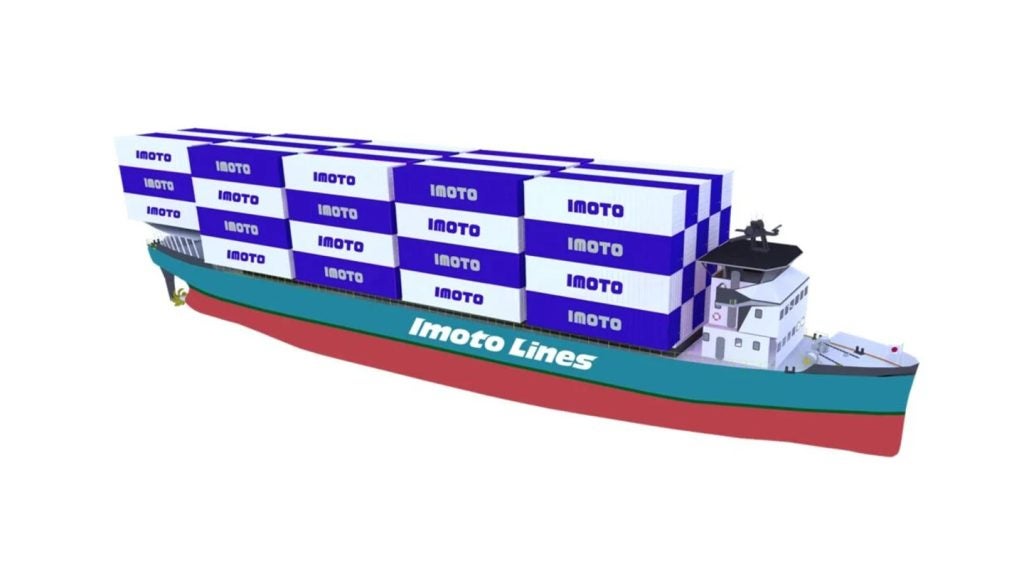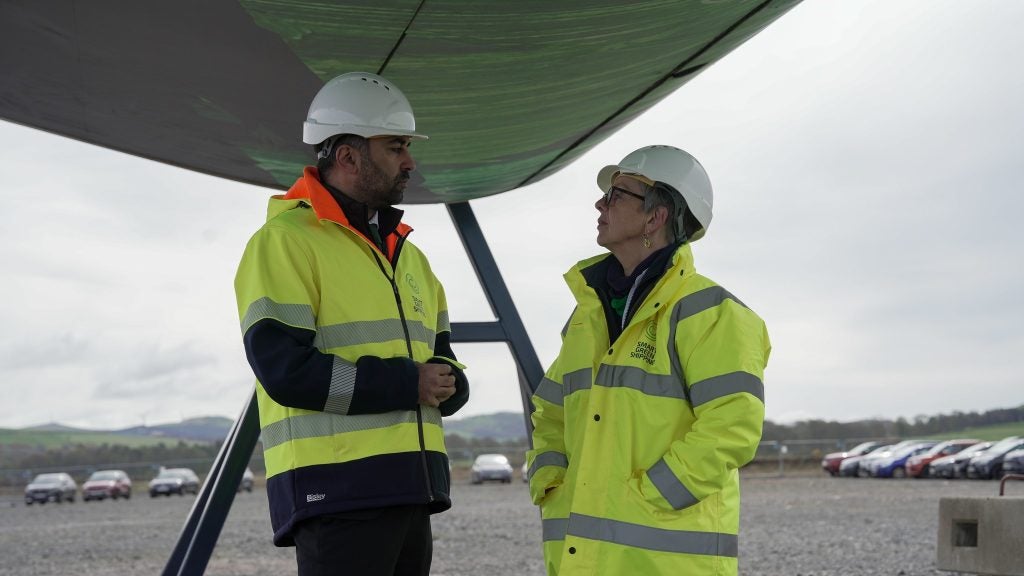

Ship Technology Global is now free for the iPad. Download our app to read the latest issue and browse our back issues for free.
NATO has sponsored research into establishing the first ever digital underwater communications standard, between networks of autonomous undersea robots. We find out more from the team behind the invention.
We also take a look at the Port Authority of Singapore’s recent technology investments, which are part of plans to develop a next-generation facility at Jurong Port, find out how marine engines can be redesigned to limit NOx emissions and black smoke, and investigate a Norwegian vessel that could be used for commercial seaweed production.
Finally, we learn about a project in New Zealand to recreate one of the oldest ships in the world using 3D modelling, and ask whether sea blindness is a myth or a reality, after 84% of the UK public correctly identified shipping as the principal mode of transport for imports and exports in recent poll.
See Also:
Read the issue for free on your iPad through our app, or if you're on a desktop computer you can also read it in our web viewer.
How well do you really know your competitors?
Access the most comprehensive Company Profiles on the market, powered by GlobalData. Save hours of research. Gain competitive edge.

Thank you!
Your download email will arrive shortly
Not ready to buy yet? Download a free sample
We are confident about the unique quality of our Company Profiles. However, we want you to make the most beneficial decision for your business, so we offer a free sample that you can download by submitting the below form
By GlobalDataIn this issue
Under the Sea
A NATO research organisation has created the first ever digital underwater communications standard. How will this – after almost a decade of development – change how people, and autonomous vehicles, communicate on the oceans? Gary Peters reports.
Read the article here.
Ahead of the Curve
The Maritime and Port Authority of Singapore recently signed five agreements to spur research and innovation. From digitalisation to robotics, automation and smart data analytics, Eva Grey finds out how the port authority is gearing up for the future.
Read the article here.
Redesigning Marine Engines
A Danish researcher has created new software to limit emissions of NOx particles and black smoke from vessels, at a time when emission regulations are tightening. Eva Grey finds out more about the new technology.
Read the article here.
What Lies Beneath
Researchers and industry in Norway are designing the world’s largest seaweed cultivation vessel to meet growing demand for the algae. Julian Turner finds out more about the project from SINTEF research scientist Andreas Myskja Lien.
Read the article here.
Digital Preservation
A team from New Zealand has embarked on a mission to create a 3D digital model of the Edwin Fox, one of the oldest ships in the world. Gary Peters finds out more about the project to preserve maritime heritage.
Read the article here.
In the Public Eye
According to a recent poll, 84% of the UK public correctly identified shipping as the principal mode of transport for the country’s imports and exports. Gary Peters asks, does this show that ‘sea blindness’ is a myth?
Read the article here.
Next issue preview
Reports suggest that the Greek Government wants to persuade shipowners and shipping insurance companies based in London to move their EU headquarters to Greece, as the UK gears up for Brexit. We investigate the potential implications.
We also take a closer look at the One Sea project, an ambitious plan to develop the world’s first autonomous shipping system in the Baltic Sea, find out whether an initiative to grant cargo owners more control over their contribution to marine emissions will have the desired impact, and consider what can be done to improve safety on-board ships.
Finally, we investigate the problem of cargo theft, which costs the marine industry billions of dollars every year, and take a closer look at initiatives to incentivise more participation from women in the maritime sector and to encourage greater workforce diversity.
Digital magazine FAQ
You can read Ship Technology Global for free on the iPad. Download our app to read the latest issue and browse the back issues in our archive. Sign up for a free subscription in the app and never miss a new issue.
You can also continue to read the desktop version for free on our web viewer. (Browser compatibility: The web viewer works in the latest two version of Chrome, Firefox and Safari, as well as in Internet Explorer 9 and 10. Some features may not be compatible with older browser versions.)






